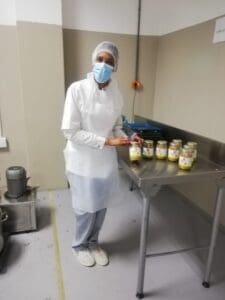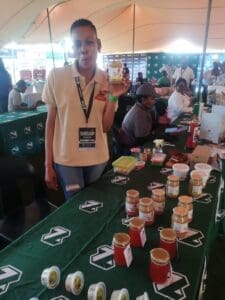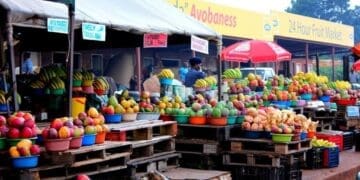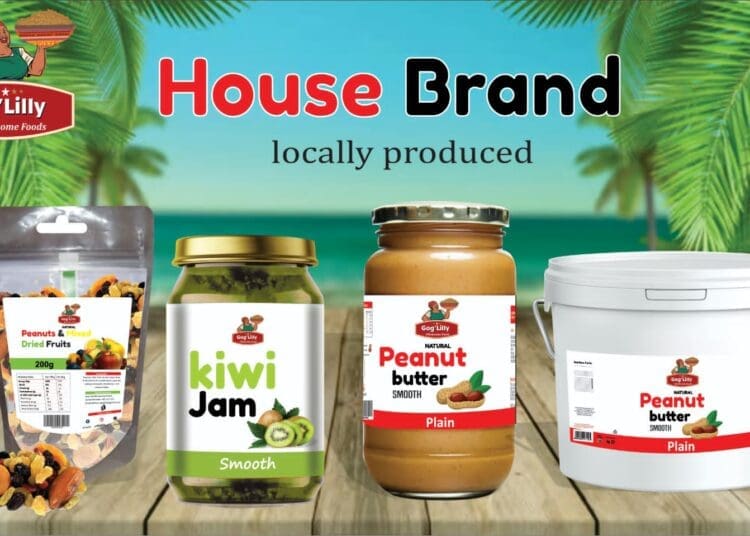By Sizakele Nduli
A Mabopane entrepreneur has not had it easy in securing market access and navigating food safety regulations for her peanut butter range of products. Thato Mabonela is the founder and director of Gog’Lilly Wholesome Foods, which produces a peanut butter range of products including different flavours, seasonal fruit jams, and roast peanut snacks mixed with raisins and dried fruits. “Ensuring that our products are safe to consume, even though we are not fully compliant, but we are in the process; our products are tested with BICSA (Bakery and Food Technology Incubator), and we are trained on Food Safety regulations and standards,” Mabonela told Vutivi News.

She also struggled to find a supplier of peanuts at competitive prices. Raw materials were a vital part of the value chain. “I struggled to get a supplier for peanuts, and when I finally got them, I was told that their customers buy in tons, and then I wanted just a few bags, but in the end, they understood that I was just starting. But the prices are high, especially buying in very small quantities,” the businesswoman explained.
Despite these setbacks, Mabonela remains focused on expanding her product range and reach, including different flavours such as cinnamon and raw honey, dips, dog treats, and snacks. “We are a natural food brand, so I looked at making healthy flavours that cater to our customers’ dietary needs; hence, we have cinnamon flavour. “Cinnamon can help reduce blood pressure and cholesterol levels, and the common health benefit of raw honey is that it can help improve diabetes management and reduce the risk of heart diseases. Our plain peanut butter is just plain, and nothing added to it but just peanuts,” she said.
Her journey into the agro-processing business began in 2015, when she and five other students were selected for an internship with the International Crops Research Institute for the Semi-Arid Tropics in Hyderabad, India. The four-month internship facilitated through the Dr. Sam Motsuenyane Foundation focused primarily on groundnuts, also known as peanuts, covering topics such as seed production and agro-processing.
After the internship ended, Mabonela, who was from Soshanguve in Pretoria, and the other students returned to South Africa, where they established their cooperative called Bontle Le Temo Primary Co-operative. It focused on growing peanuts and processing them into peanut butter. Although the cooperative collapsed in 2019, it did not mark the end of her journey. Instead of giving up, Mabonela used her knowledge and experience as a foundation to start her agro-processing business in 2021.
“While in India, I was inspired and motivated by the Indian community who produced and consumed their own products, and also it was in response to the socio-economic problems of youth unemployment in our country and still is to date, lack of youth involvement in agriculture and food security.
“Also, the food industry is flooded with artificial food products, which are either unhealthy and later pose a threat to the human body,” she said.
Despite not using organic peanuts, Mabonela stressed that the peanut butter was natural.
She said the peanuts met quality standards, including moisture content, aflatoxin levels, and physical appearance. Her supplier was accredited, and Mabonela requested a test sheet for each batch purchased.






















































